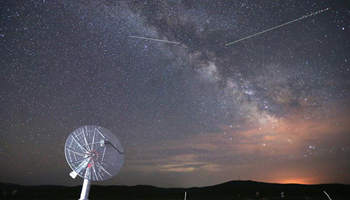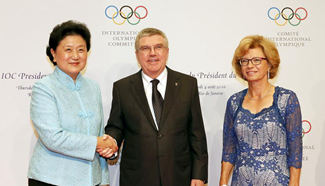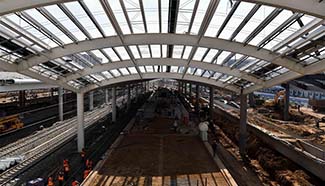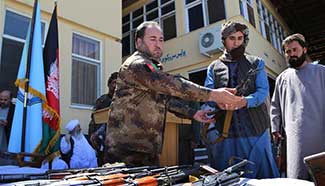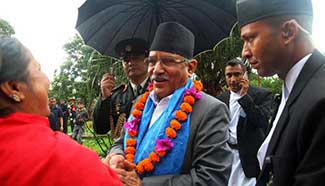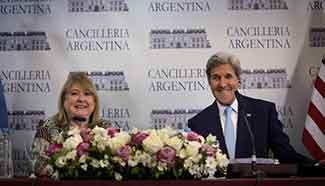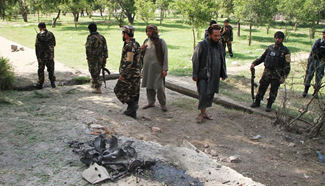
SEOUL, July 8, 2016 (Xinhua) -- A man walks past a poster with "No!THAAD" during a protest against the decision to deploy the Terminal High Altitude Area Defense (THAAD), in Seoul, South Korea, July 8, 2016. South Korea and the United States on Friday announced their final decision to deploy the THAAD in the U.S. Forces Korea (USFK) despite continued oppositions from neighboring countries. (Xinhua/Yao Qilin)
MOSCOW, Aug. 5 (Xinhua) -- The deployment of the Terminal High Altitude Area Defense (THAAD) missile defense system is a serious policy mistake made by South Korea, which is expected to escalate tension on the Korean Peninsula, a Russian political analyst said.
"The decision to deploy THAAD missile defense system in South Korea is a provocation from the American side ... the system provides no additional benefits for the defense of South Korea," Oleg Barabanov of the Moscow State Institute of International Relations told Xinhua.
Meanwhile, its deployment will serve to escalate tension on the Korean Peninsula, forcing the Democratic People's Republic of Korea (DPRK) to take countermeasures, he noted.
The DPRK on Wednesday fired two ballistic missiles, one of which was reportedly landed in Japan's exclusive economic zone. The launch was the latest in a volley of missiles fired by the DPRK, apparently in protest against the deployment of THAAD in South Korea.
On July 13, Seoul and Washington announced an agreement to install one THAAD battery in the Seongju county by the end of next year, claiming that it is aimed to deter ballistic missiles from the DPRK.
Barabanov said this decision undermines the constructive relations between Seoul and Moscow, which have been strengthened in recent years and withstood the test of the Ukrainian crisis.
China and Russia are strongly opposed to the deployment of THAAD, as the X-band radar of the system could easily snoop on the territories of the two countries, a potential threat to regional peace and stability.
Russia earlier indicated the possibility of deploying missile units in the country's eastern region in response to the deployment of THAAD.
"Neither Russia nor China wants a new round of militarization on the Korean Peninsula and in the Asia-Pacific region ... The deployment of the THAAD system will only exacerbate the DPRK nuclear issue," said the expert.
In his opinion, the short-sighted decision Seoul was talked into by Washington would justify Pyongyang's development of nuclear capabilities as in a "quite natural and even legitimate response."
In a broader view, Barabanov believes that the THAAD deployment fits into Washington's strategy to contain both Russia and China.
The expert believes that the U.S. moves in the Asia-Pacific region are aimed largely at curbing China.
"We see this not only in the economic sphere, for example in the project of Trans-Pacific Partnership, but also in the military and political sphere, given that the United States is behind the ongoing tensions in the South China Sea."
THAAD deployment in South Korea indicates a new arms race initiated by the United States, he added.




